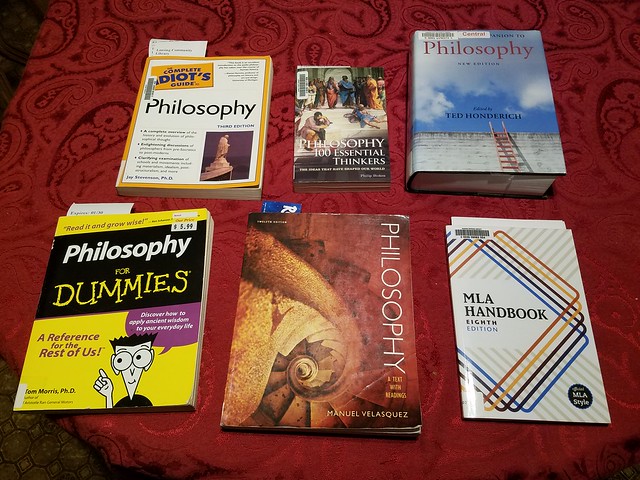Back in the mid 90s, I resigned myself to not finishing my undergraduate degree in mathematics/computer science. Life happened (I’ll spare you the stressful, depressing details). Fast forward to the present, nearly two decades into the second millennium, where my life seemed to be stable and my faculties ready to take on a return to college. I jumped through the various academic and bureaucratic hoops last year to get my college credits transferred to a local university. I pre-enrolled at two different institutions, one where I planned to complete my undergraduate, but also at a local community college that offered many online courses that could better accommodate my schedule as a full-time employee.
Then Fate, Chance, the Devil or all three, decided my life wasn’t complicated or challenging enough. Over Thanksgiving, a co-worker resigned, one who was responsible for the enterprise-wide document management system for the large law firm where I’ve worked for the last twenty years. Fortunately for the firm, but not so much for me, from 1997 until 2009, I performed those same duties. Can you see the writing on the wall?
Doing two to three extra jobs under normal conditions wouldn’t be impossible for me, at least temporarily until a suitable replacement could be hired. But these are not normal times. My department (Information Technology) is in the middle of the final phase of a major rollout and migration project. I said goodbye to any leisure time that first week of December. I’m also living on a lot less sleep.
I dropped out of the course I’d signed up for at the university but I stayed enrolled in the one at the community college. Why? Because I’m crazy? Maybe. I just didn’t want to throw in all my towels. I wanted to prove to myself that I still had some student chops.
My transcript showed my love of all things mathematical or computer related from wayback in the 80s and 90s. I barely had any other general education credits, aside from English composition, sociology, and psychology. Then as now I have a hard time paying good tuition money for soft sciences and soft skills. I want to apply myself to something harder and more logical. I still feed this craving through my career as an analyst and project manager.
As much as I wanted to dive into my beloved math and science, I knew in my hard analytical heart that what I really needed was a humanities course. Besides, no matter what degree I’m pursuing, I’m going to need humanities credits to complete it. So, I enrolled in an Introduction to Philosophy online class not knowing anything about the subject, aside from pop culture references or gleanings for casual book readings.
In early January, I participated in ‘express enrollment’ at the local community college because I needed a new student identification card and I needed to buy my textbook (an online course that didn’t offer an electronic edition of the textbook boggles my mind). The sticker shock of textbook prices (see caption for my cost in photo below) floored me. Not helpfully, I did receive a ‘free’ T-shirt from the bookstore for successfully completing my ‘express enrollment.’

How do poor young adult students manage? At this point in my life, I can reasonably justify dropping a couple of hundred bucks on a book knowing I’ll get some of that money back at the end of the semester.
Classes began the day after the Martin Luther King, Jr. holiday. By then, I’d already read and re-read the first chapter entitled “The Nature of Philosophy” of the textbook and decided there was a lot I didn’t know about philosophy. That, and the font used in that textbook is not easy on my aging eyes. I took full advantage of all the libraries I frequent to supplement my return to college study (see photo above).
Last night I started reading the Philosophy for Dummies book after reading the first section of the second chapter on Human Nature in my textbook. It’s actually quite entertaining (I’m not referring to the textbook, although it’s technically ‘enlightening’). The most encouraging thing in all this reading is learning that whatever I thought philosophy was two months or two decades ago, it’s definitely applicable to my career and my life.
Learning to think critically is like getting a brain upgrade. And at my age, Brain 2.0 seems like a sweet idea.
Tomorrow, I will share the results from my unscientific survey of friends and family when I asked them this question:
Ask six friends what they think philosophy is.
I encourage you to comment if you would like to share your response to the above question.

4 thoughts on “My Brain Upgrade Project”
Comments are closed.